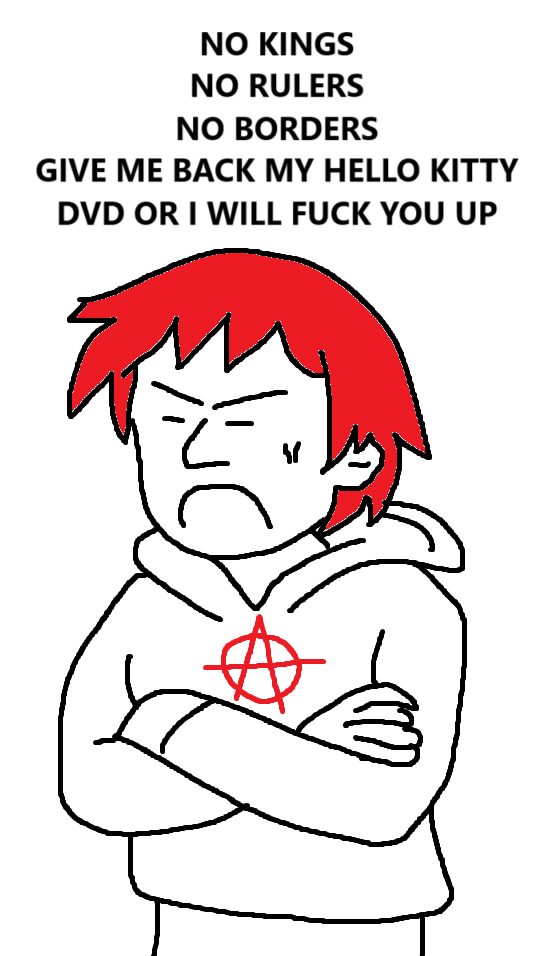[dude with glasses in a communist t-shirt, arguing] I’m the only leftist here, your opinions are TRASH
[dude holding a theory book on smug, arguing] Read theory you losers, you’re all WRONG
[dude in an anarchist hoodie, arguing] Nuh-uh, I’m the only leftist here, you’re SHITLIBS
[the three dudes are now caught in a cartoon fight, glasses gone flying, punches everywhere, while a firing squad of nazis are targeting them with rifles]
[a confused nazi asks] Why… why are they still arguing?



im sorry to hear that after all of this u continue to claim the state is an extension of its people, and continue to mix representation and delegation. or for that matter, the myth of the state abolishing itself, which has no basis in reality.
ill give up on explaining this to u now. just one small thing: its spelled Bismarck, not Bismark.
Yes, after all of this I hold to the Marxist understanding, you haven’t offered any compelling reason to abandon it, and have, to the contrary, shown a poor understanding of Marxism on both your’s and Anark’s parts. I’ll correct a few of your misclaims about my stance here, though, for any popping in afterwards:
The state is an extension not of its people. The state is an extension of the ruling class, and the ruling class is determined by the base mode of production. A bourgeois state is one where private property is the base mode of production, and a proletarian state is one in which collectivized ownership is the base mode of production. As all property gets collectivized, class disappears, and so too does the need to oppress other classes, as everyone has equal ownership, leaving only instruments like social planning, administration, management, etc in place. That’s the economic and historical basis of the elimination of the state.
As for delegates vs representatives, I understand the difference you claim they have, I just don’t hold them as foundationally different to the point that one or the other invalidates the entire social basis of production.
Thanks for the Birmarck correction. Doesn’t invalidate my points, but I’ll make the correction regardless. If you have more questions, I’ll be more than happy to answer.
I’ve never seen such unjustified condescension, my god.